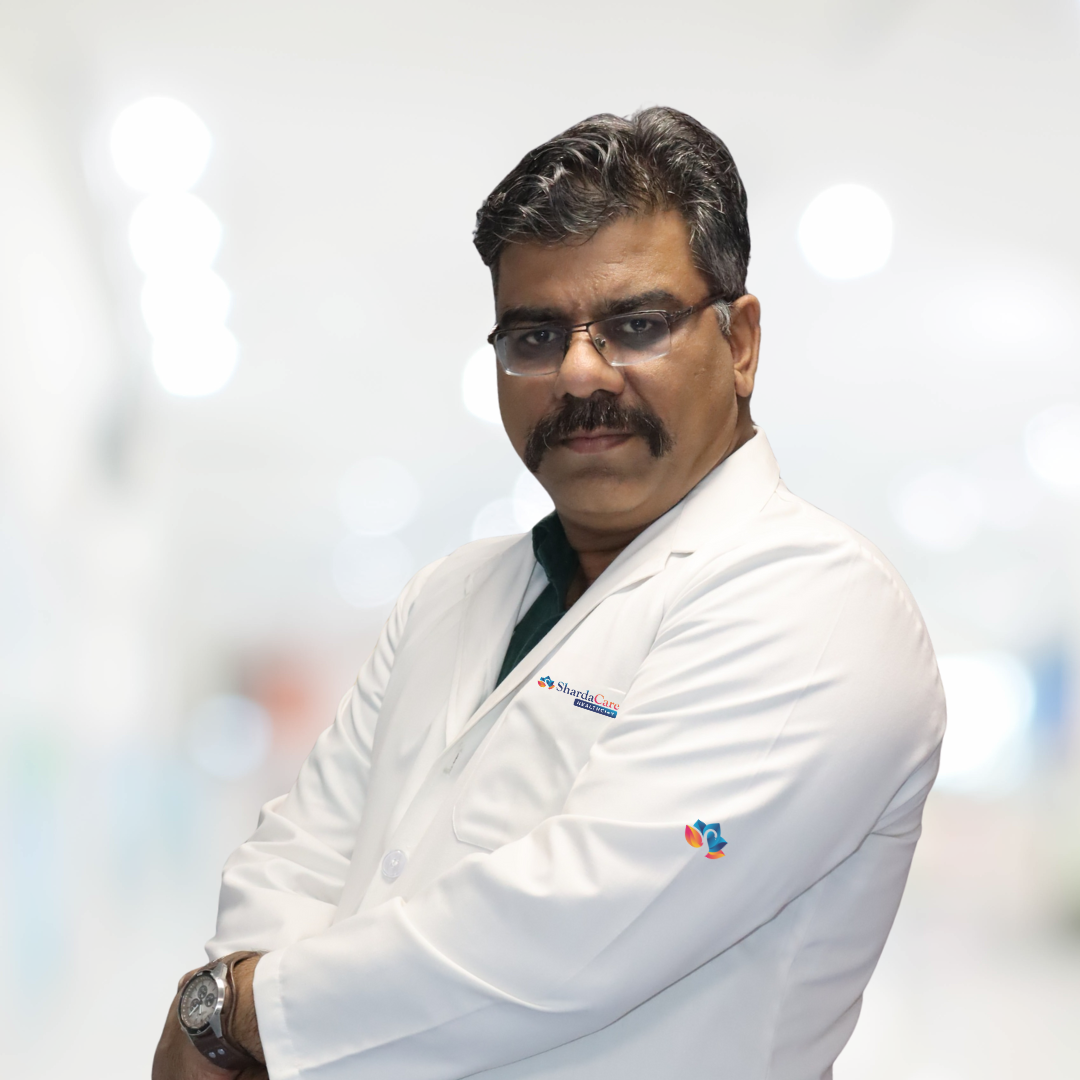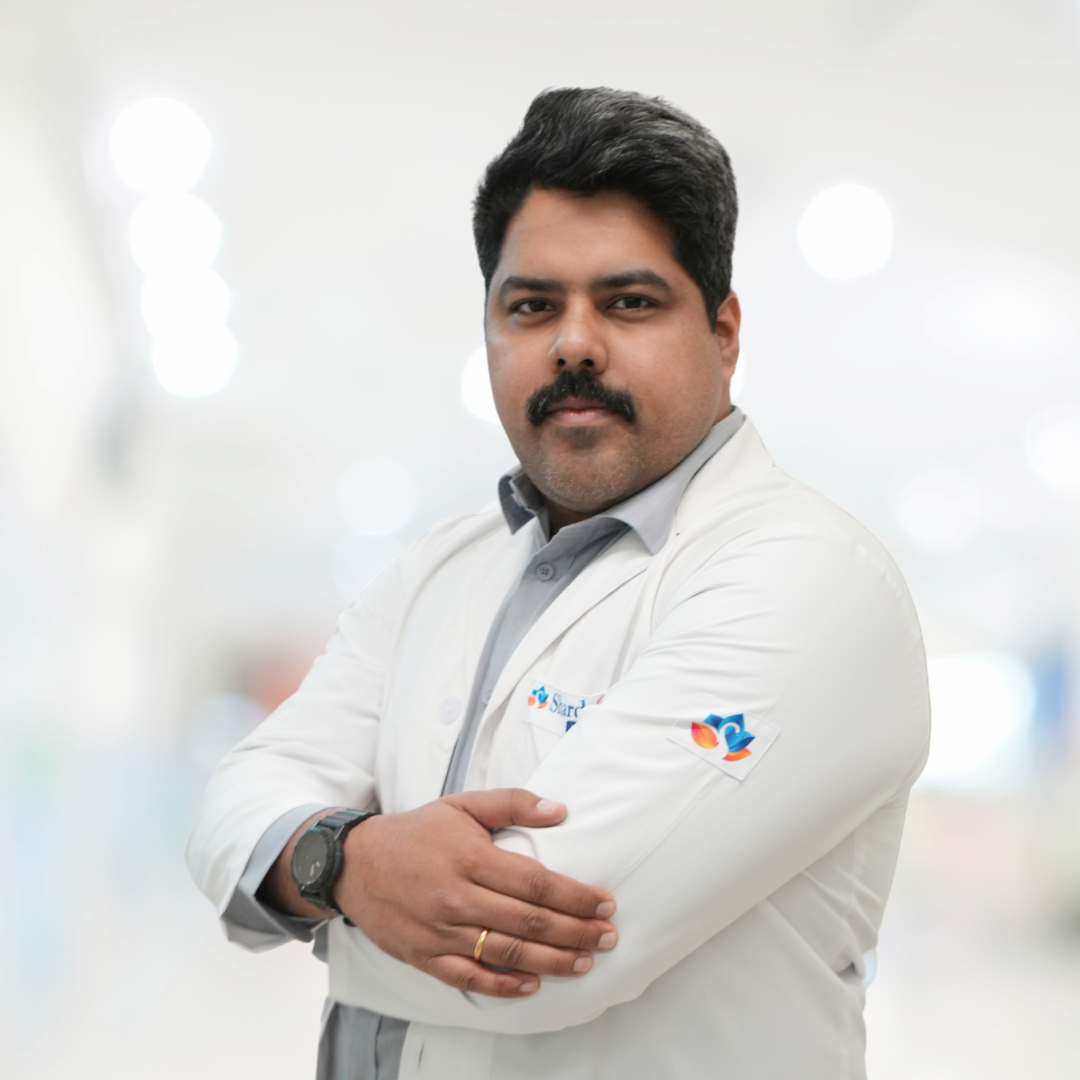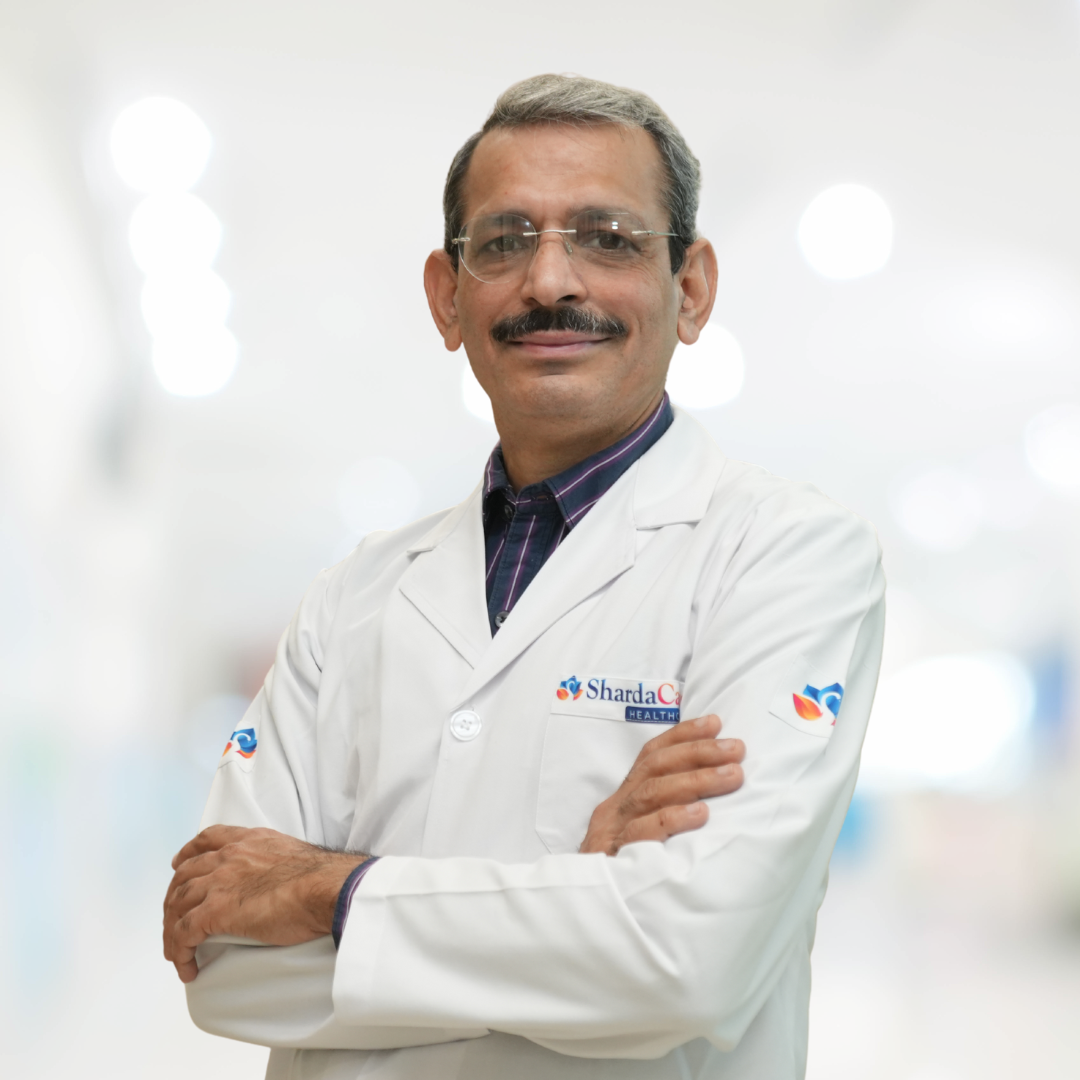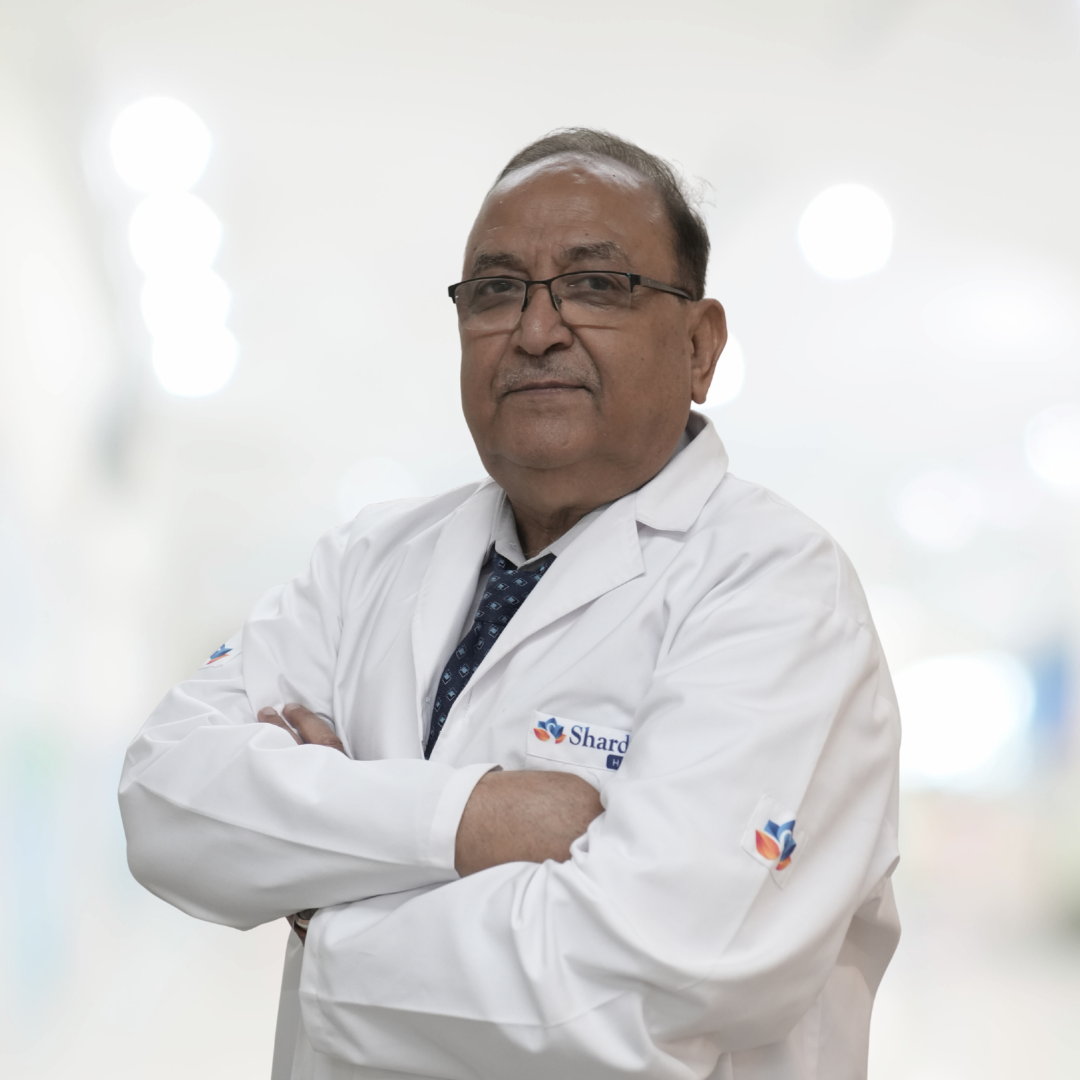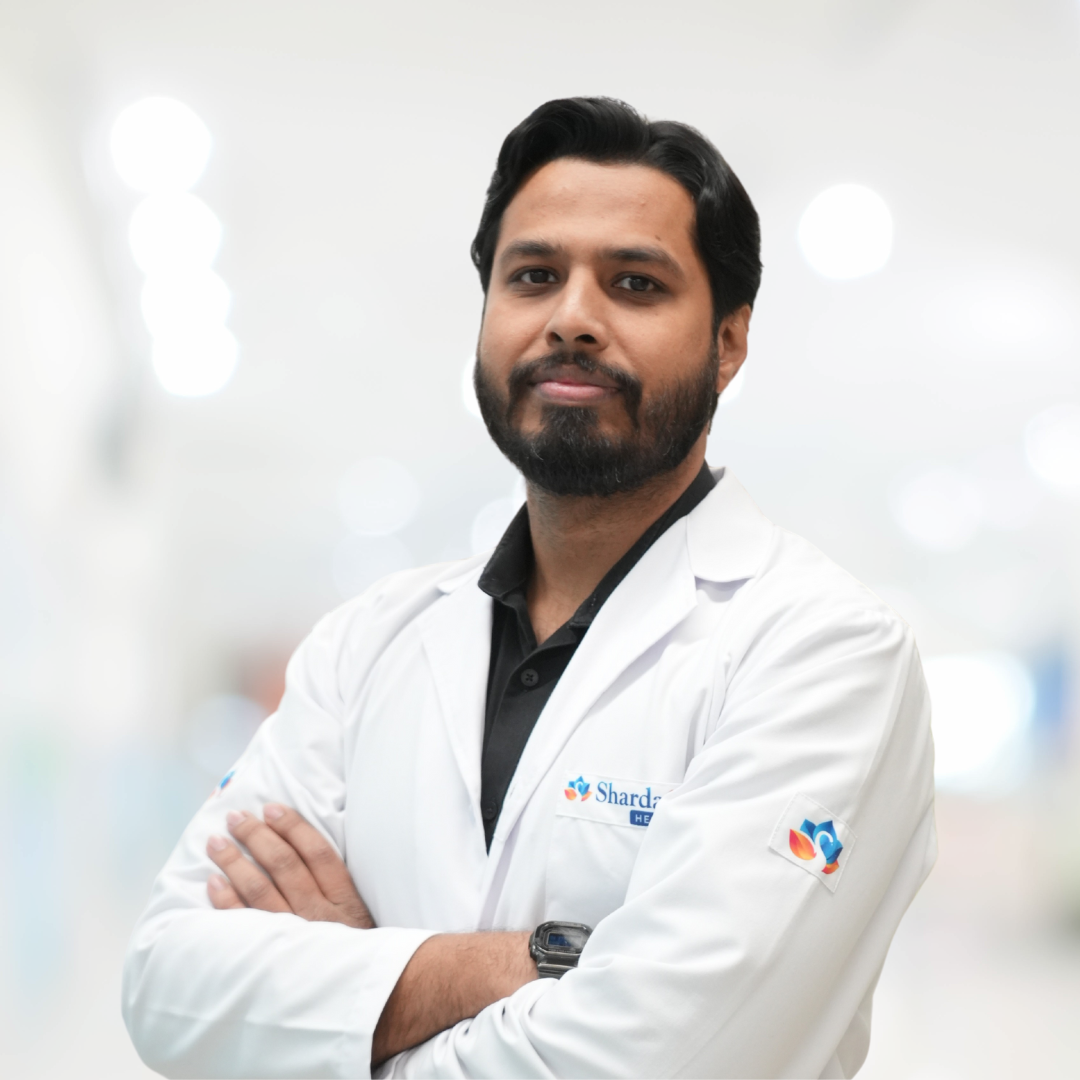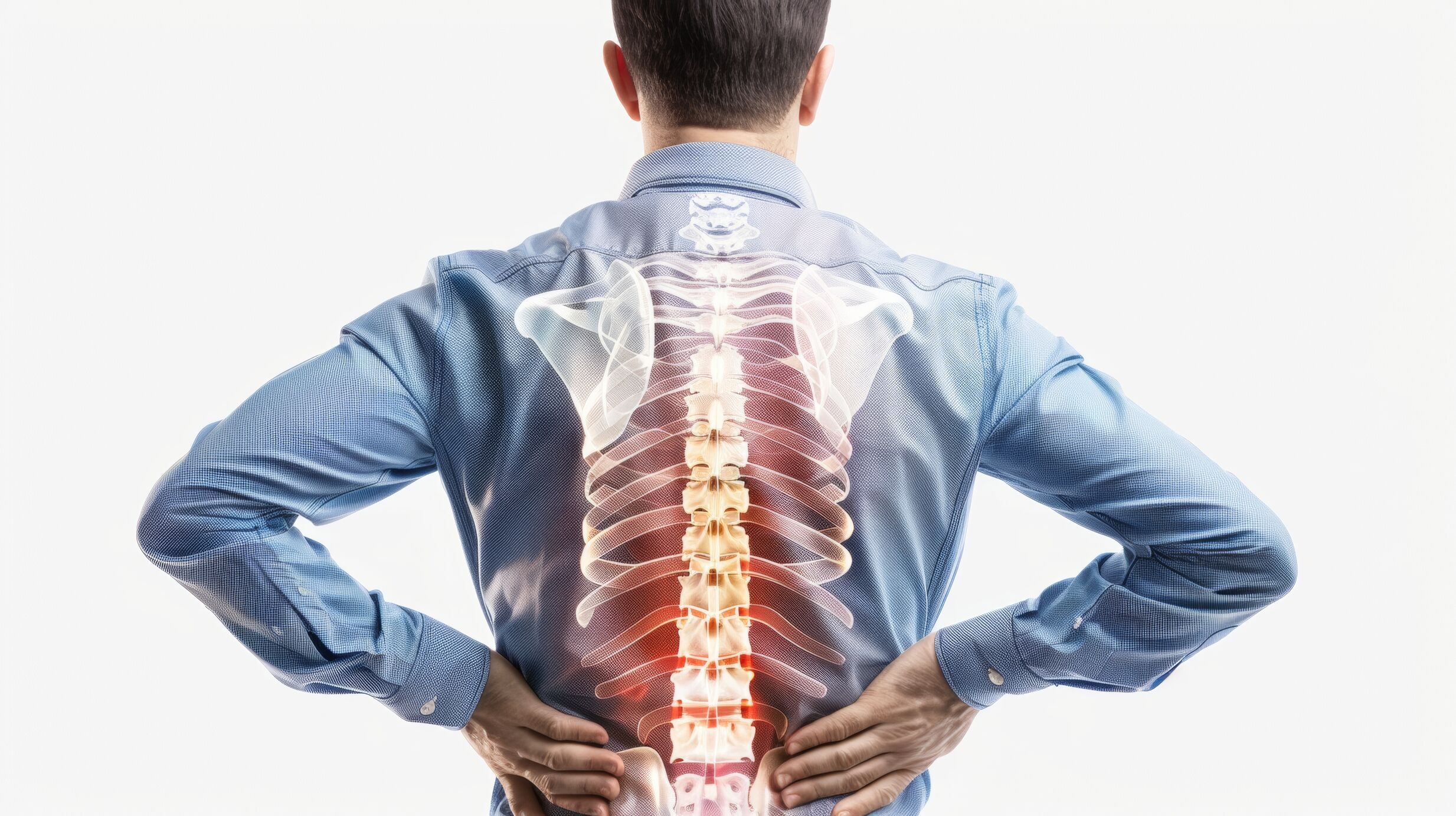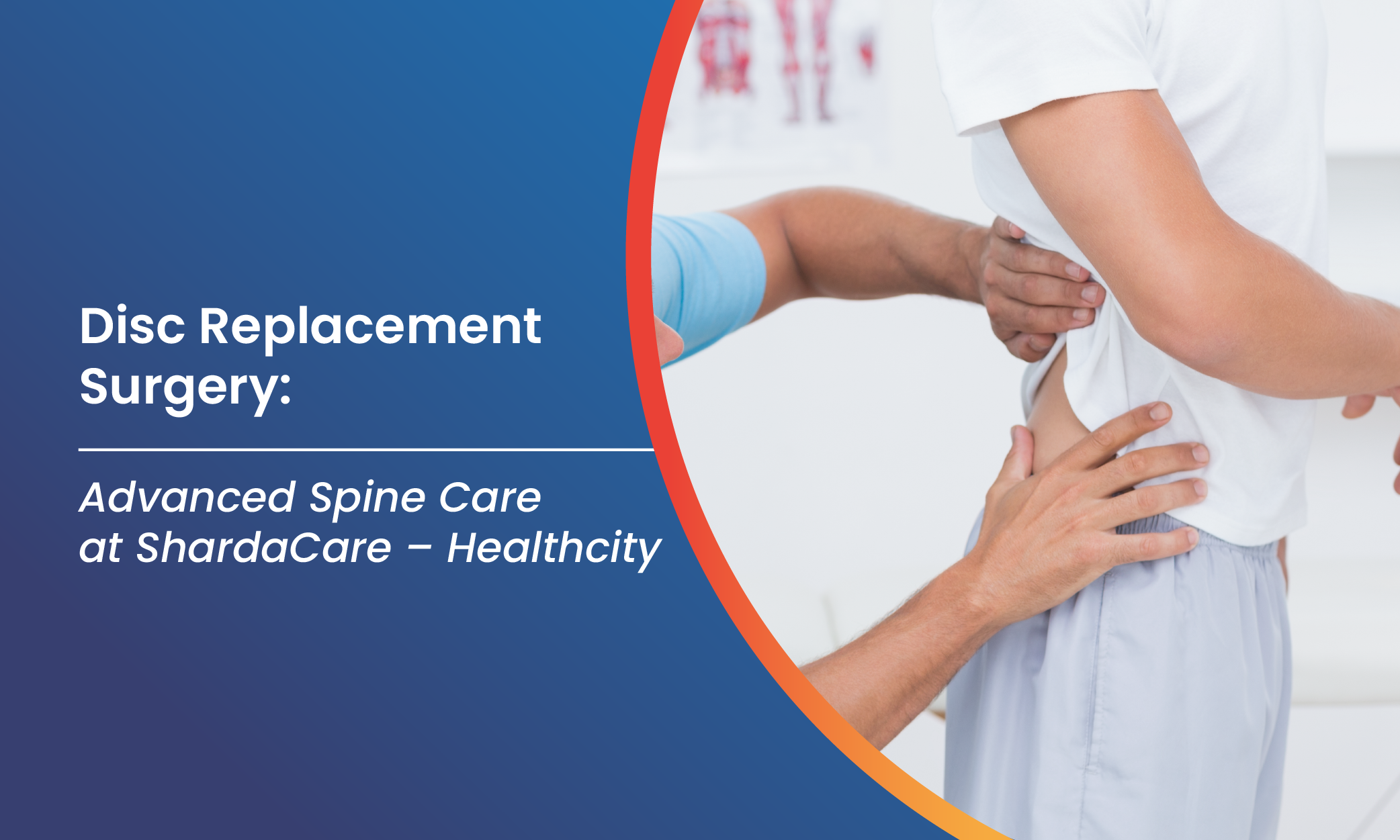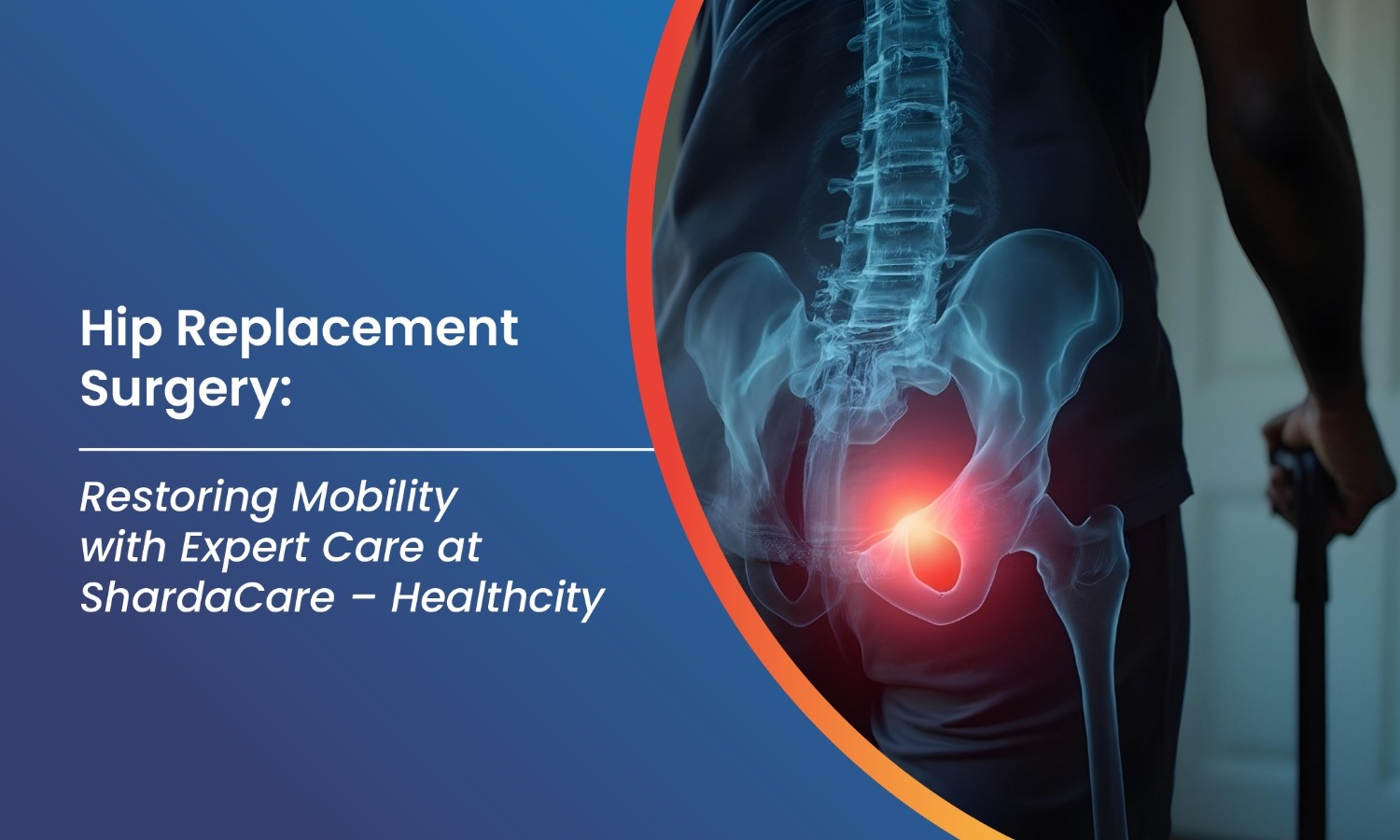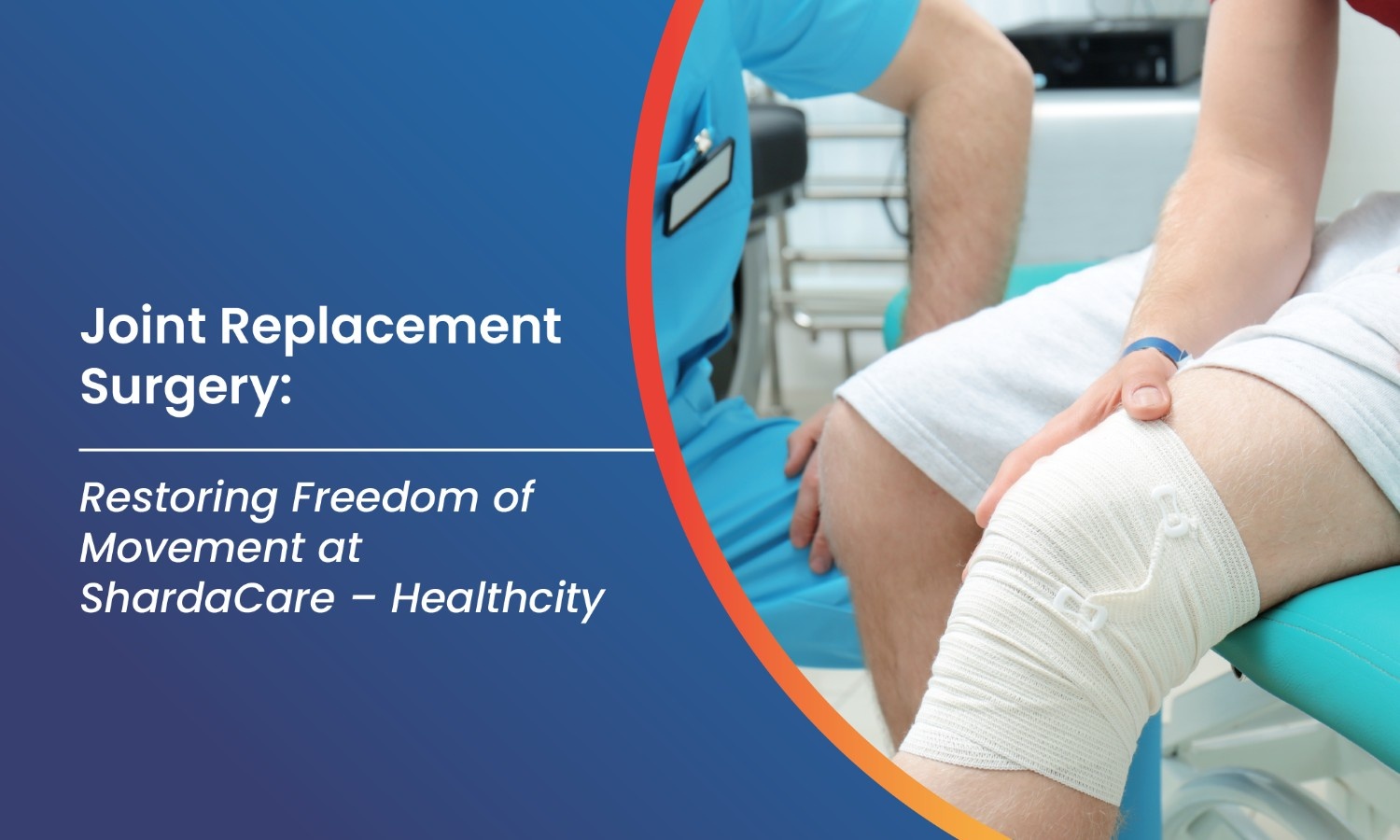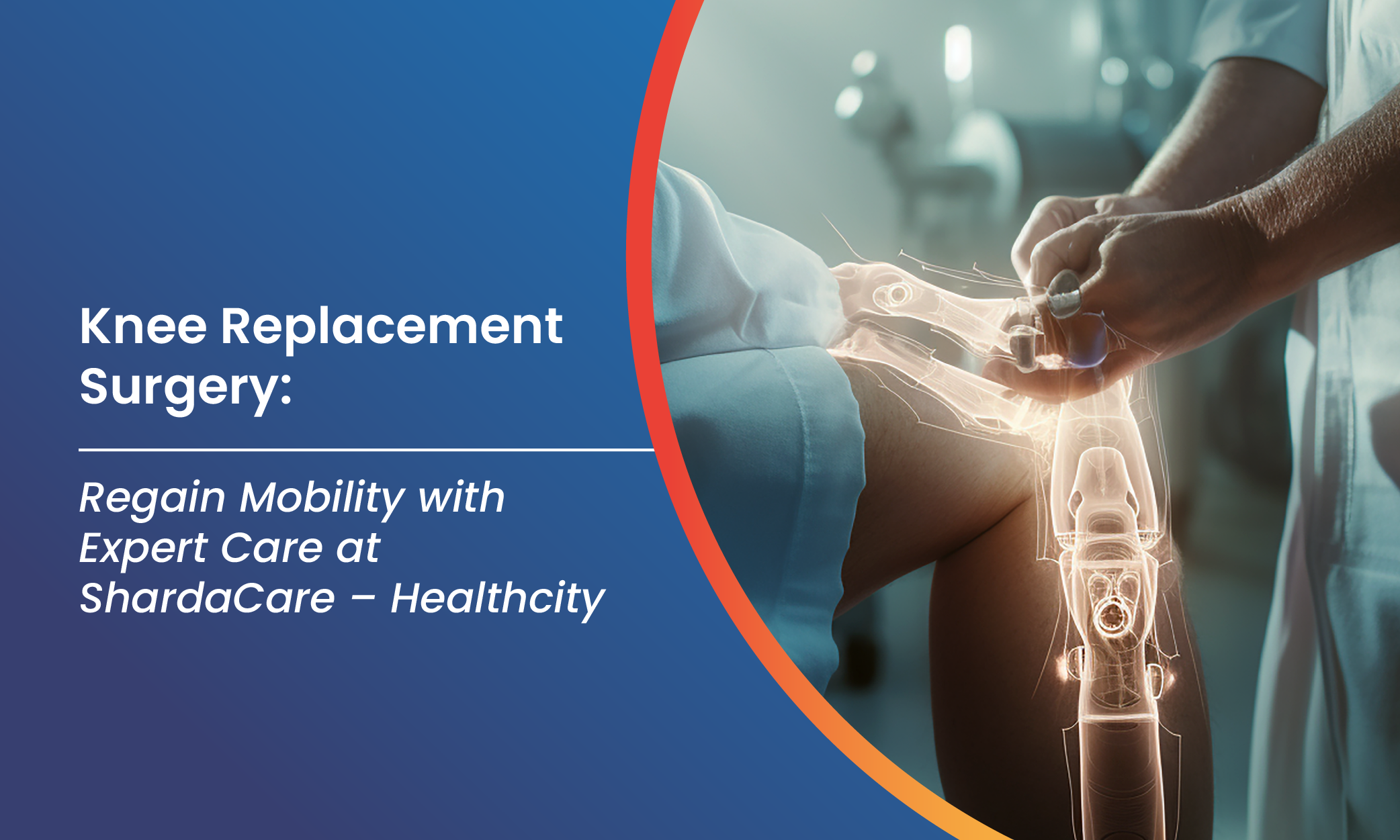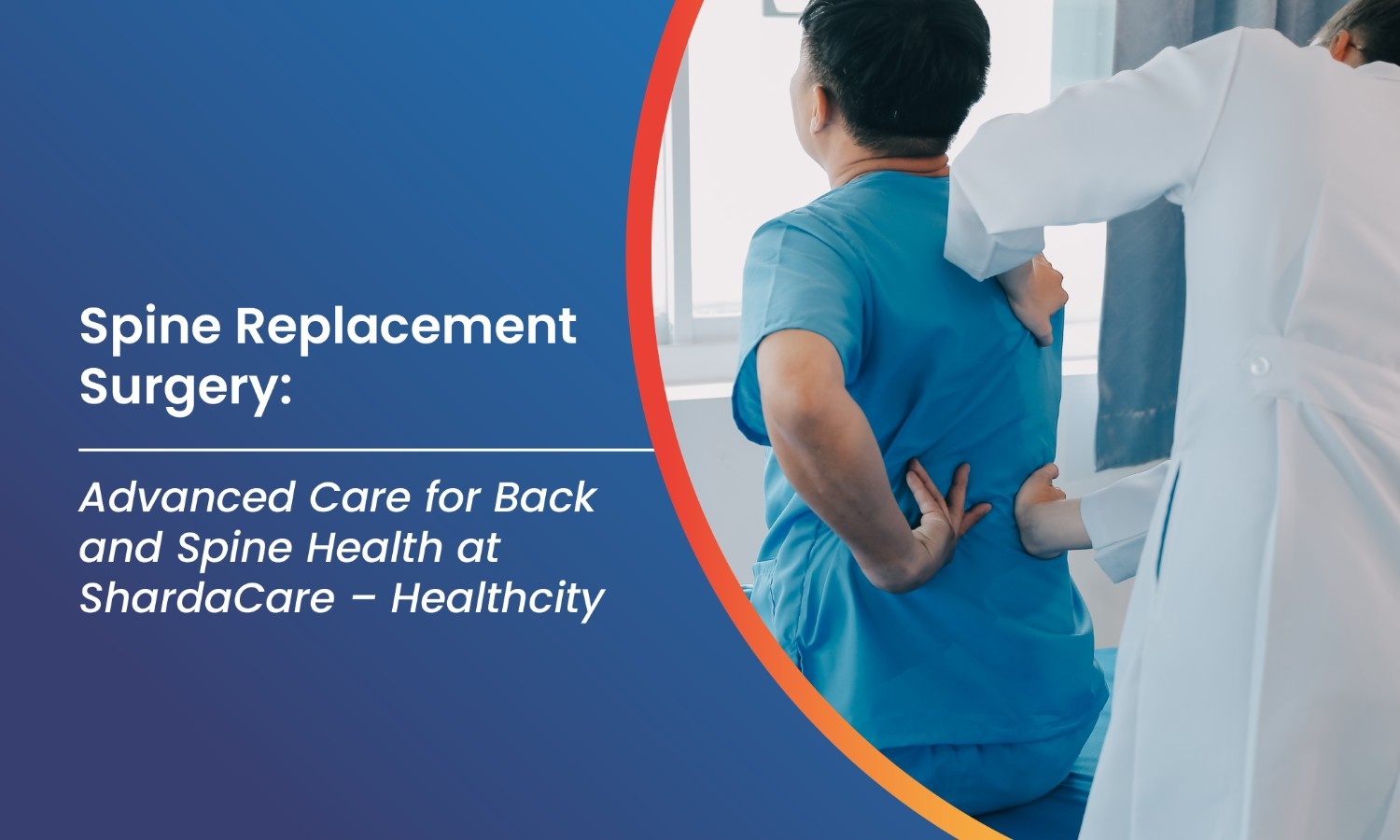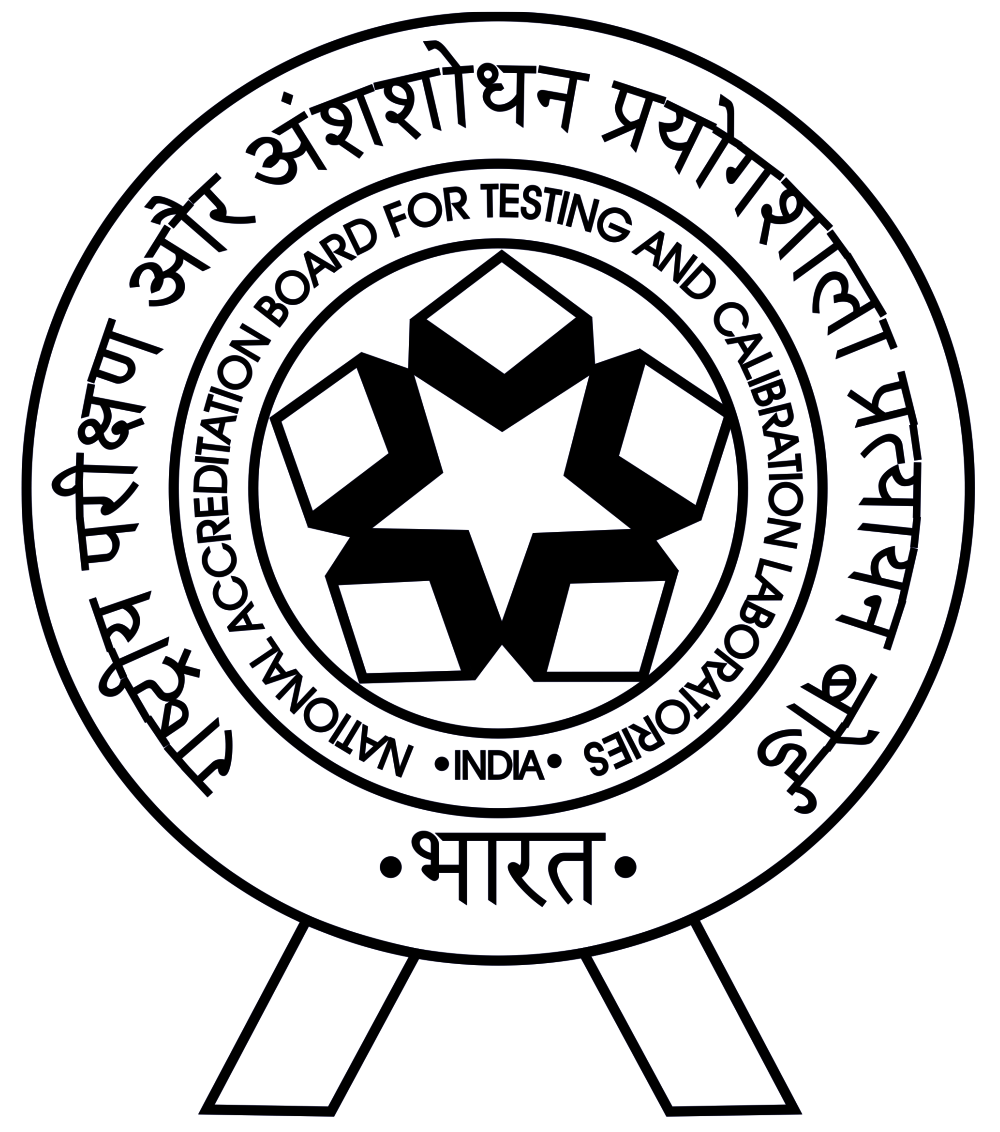
Bone & Joint Replacement Surgery at ShardaCare – Healthcity
The Bone and Joint Replacement department at ShardaCare - Healthcity specializes in arthroscopy, catering to sports injuries, spinal injuries, trauma recovery, and complex joint replacements involving the hip, knee, elbow, and shoulder. Our skilled surgeons perform these surgeries with utmost care, ensuring maximum bone and joint health for patients under expert supervision. With a proficient orthopaedic team from various parts of the country, ShardaCare - Healthcity provides accurate diagnosis and treatment for all major and minor osteoarthritic issues, including Brachytherapy, extendable prosthesis, periarticular injury management, pathological and traumatic extremity fracture fixation, and Total Bone replacements. Our treatment modules include platelet-rich plasma transfusion for osteoarthritis patients, utilizing advanced technology for bone restructuring and minimally invasive surgeries to ensure rapid trauma recovery.
At ShardaCare - Healthcity , we employ cutting-edge technology for bone restructuring and perform minimally invasive surgeries, ensuring rapid trauma recovery. Our patient-centric approach emphasizes fast recovery, minimal scarring, reduced blood loss, and fewer follow-ups. Our team of experienced rheumatologists, anaesthesiologists, and rehabilitation doctors ensures a smooth patient recovery process, providing complete comfort and care.
Looking for an Expert
ShardaCare - Healthcity is home to some of the eminent Doctors in the world.
Book an Appointment

